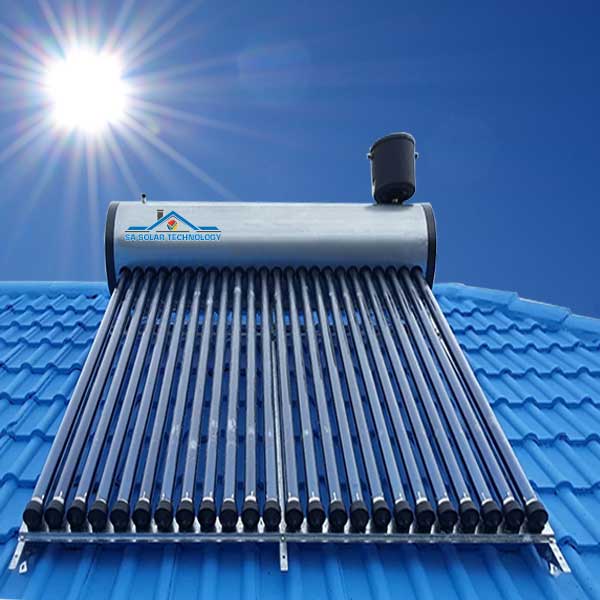Finding the best way to heat your water for your home is crucial for cutting down on electricity bills and overall comfort. Heat pumps and solar geysers have become increasingly popular as options for eco-friendly water heating. In this article, we will take a closer look at the benefits solar geysers and heat pumps for your home.

What is a Solar Geyser?
Solar geysers harness solar energy to ensure hot water supply. Solar water heaters use tubes and a water reservoir. The panels capture sunlight, which is then converted into thermal energy. Using solar geysers reduces reliance on traditional electricity-based systems.
Benefits of Solar Geysers
A key benefit of solar geysers is their ability to save energy. By using free energy from the sun, they drastically reduce your monthly electricity bills. Along with the cost savings, they are also better for the environment.
These systems work best in sunny regions. Even on cloudy days, many systems are designed with backup heating options to ensure you have hot water when needed.
Is a Solar Geyser Right for You?
Opting for a solar geyser is a great choice seeking an eco-friendly solution. If your home receives a lot of sunlight can get the most value from this system.
However, it’s important to consider the initial cost of a solar-powered geyser. Even though you will save in the long run, the initial setup can be significant. You may be eligible for rebates to cover some of the installation expenses.
Understanding Heat Pumps
Heat pump systems use thermal energy from the environment to warm your water. Rather than generating heat directly, they transfer heat from one place to another. This makes them a cost-effective solution, because they consume significantly less energy compared to electric geysers.
Why Choose a Heat Pump?
The main advantage to choose a heat pump water heater is its ability to save energy. Heat pumps can reduce energy consumption by up to 60-70% compared to electric geysers. This leads to significant savings on utility costs.
In addition to energy savings, they reduce greenhouse gas emissions. Since they don’t rely on fossil fuels, they reduce reliance on non-renewable resources compared to gas or electric heaters.
Who Should Consider a Heat Pump?
Using a heat pump is a great choice interested in reducing electricity usage. They perform well in regions with moderate temperatures, as extremely cold weather can impact their efficiency.
Similar to solar geysers, heat pump systems come with a higher upfront cost. However, the long-term energy savings make them a cost-effective solution.
Which is Better: Solar Geysers or Heat Pumps?
Both solar geysers and heat pumps are great options for reducing your carbon footprint. Each one comes with its own advantages and considerations. Let’s look at the key differences:
Energy Efficiency: Solar geysers offer free heating when the sun is shining heat pump, while heat pumps require some electricity but still save energy.
Upfront Costs: Solar geysers may be more expensive to install, but they save money on energy bills in the long run. Heat pumps have lower installation costs compared to solar geysers.
Performance in Different Climates: You’ll get the most out of solar geysers in sunny climates, while heat pumps work well in moderate climates.
Wrapping It Up
Both solar geysers and heat pumps provide energy-efficient water heating options for those seeking sustainable energy solutions. For sunny regions, solar geysers are the way to go. For those in areas with less sunshine, heat pumps can still deliver great energy efficiency.
No matter which option you go with, you’ll enjoy long-term savings and enjoy an eco-friendly water heating solution.